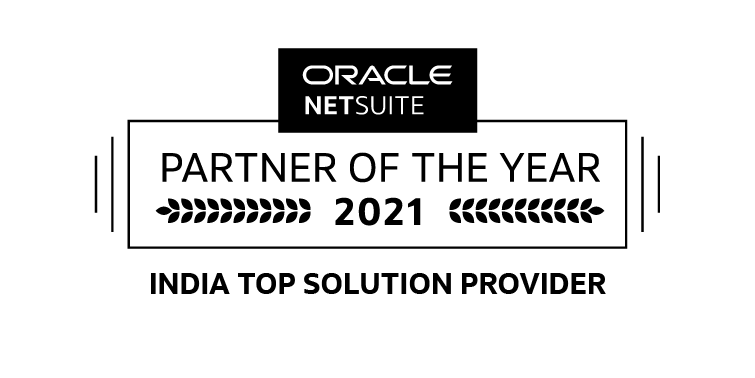Table of Contents
Businesses in retail supply chain undergo a range of challenges that often disrupt the supply chain operations. Challenges across SCM in the Retail Industry drive up their inventory costs and may lead to missed targets, and dissatisfied customers. In such a case, leveraging the right Retail Supply Chain Management Software like NetSuite not only helps overcome challenges but grab trending growth opportunities as well.
Challenges in Modern Retail Supply Chain
Multiple Vendors Management
Retailers that get materials from multiple vendors face major challenges in tracking, analyzing, and managing these relationships. It goes double for retailers if it is an overseas vendor, which increases complexity in terms of adjusting to different languages, time zones and regulatory compliance rules.
Inventory Levels Optimization
Unused stock incurs astronomical inventory costs and takes up valuable space in a retailer’s warehouse, while underestimating demand leads to stockouts, and missed sales opportunities. It gets tiresome and tedious to maintain the right balance between customer delivery and customer demands.
Global Shortages
Worldwide shortages, a workers’ strike at an overseas warehouse, a global pandemic can shut down the supply chain process. Besides slowing down supply chain processes, global shortages can also drive up the cost of raw materials as well.
Shipping Delays
Shipping delays or shipping-port delays could continue to cause disruption for years to come.
Customer Experience
For the most part, retail customers expect to browse, buy, receive, and return products easily, whether they shop in a store, on their phones, or through social channels. Also, in the case of returns, these expectations touch every part of the supply chain, from procurement and inventory to delivery and reverse logistics.

Everything You Need in One Place, in Real Time: NetSuite
NetSuite Supply Chain Management enables retailers to centralize data from across their supply chain. This ensures that every team from procurement to logistics works with the same version of the truth.
- NetSuite Retail Supply Chain Management System renders extensive visibility across the supply chain to empower retailers to match their demand planning to customer expectations and execute their supply chain strategy effectively.
- NetSuite empowers retailers to build data-driven supply chains by recording and updating production data, financial reports, inventory, and customer orders in real time. These retailers are informed by up-to-the-minute intelligence and help in managing a retail supply chain with having all the right data in one place.
- By leveraging the core capabilities of NetSuite supply chain management software, retailers can centralize and manage their supplier relationships from one location, based on a single, accurate record of their data on everything from invoicing to performance metrics.
Additionally, NetSuite for Retail delivers a single platform to assist retailers in managing everything from in-store point-of-sale (POS) systems, and ecommerce experiences to customer relationship management (CRM), financial and inventory processes.
Also, NetSuite for Retail allows modern retailers to bring their omnichannel strategies to life. With such capabilities, retailers get greater control over supply chain performance, operating costs, and customer experiences.
To Improve Supply Chain in Retail Management, Retailers can
Implement Automation
Automation software like NetSuite Retail Supply Chain Management can help businesses complete supply chain–related tasks more efficiently. Additionally, NetSuite providers help drive automation to let retailers track and record the movement of inventory, relieving employees from manual data entry, and removing the associated risk of human error.
Use Tracking and Forecasting Software
Retailers can gain a firsthand view of their supply chain functions by tracking products through every step of the supply chain. This end-to-end view for every product manufactured, sold, and delivered gives retailers a global understanding of their supply chain performance and check improvements. Additionally, tracking products gives retailers accurate, real-time data on inventory levels.
Integrate All Systems
The retail supply chain has many interdependent parts and changes to one process will likely have knock-on effects to the rest. By integrating the systems and data, retailers can gain an accurate view of production, warehouse functions, inventory, market forecasts, and customer demand. Interestingly, all this data would be available in a centrallized location, which improves operational efficiency.
Get a Demand-Driven Supply Chain Model
Retailers can demand-driven supply chain model to forecast and adjust to the market’s demand for their products, taking an outside-in approach to supply chain planning and strategy. For the most part, demand-driven models promote extensive coordination among supply chain operations, marketing, and sales teams.
Increase Supply Chain Visibility
To optimize the supply chain, retailers can rely on supply chain management software like NetSuite for Supply chain in retail management. It delivers the visibility into customer-demand data, alongwith inventory levels for every product, at every step of the supply chain journey.
Adapt to Multichannel Fulfillment Options
Alternative fulfillment options, like curbside pickup and buy online, pick up in store (BOPIS) are quite in practices. Retailers selling online are increasingly partnering with third-party logistics providers (3PLs) to fulfill ecommerce purchases, and reach the scale needed for quick local deliveries.
Improve Product Traceability
It takes more than stock counts to trace and manage retail inventory. Many retailers trace their products through barcodes and lot or serial numbers to ensure customer satisfaction and items are consistent in terms of quality and are delivered on time.
Leverage Predictive Analytics
To manage a supply chain in retail management effectively, retailers need to make data-driven decisions. Predictive analytics that combine historical and current data on supplier performance, inventory turnover, warehouse operations, and fulfillment delays help retailers reveal and address any inefficiency.

Why inoday for Retail Supply Chain Management Software?
As an official and #1 ORACLE NetSuite Channel Partner, inoday renders 16+ years of experience in driving digital transformation via cloud computing solutions. Our NetSuite Consultants are experienced and skilled at delivering industry standard-based practices and expertise to assists thriving retailers manage their supply chain and extend their global reach effectively. We are adept at not only driving automation but ensuring business continuity even beyond the implementation lifecycle. Our willingness to take up challenges and out-of-the-box approach to solve mission-critical issues has helped us gain global recognition and many accolades.
FAQs
What are the 7 C's of supply chain management?
Experts identify the 7 Cs of supply chain management as Connect, Create, Customise, Coordinate, Consolidate, Collaborate, and Contribute.
What are the 5 components of retail supply chain management?
The top-level of this model has five different processes known as components of Supply Chain Management such as Plan, Source, Make, Deliver, and Return.
What are the benefits of retail supply chain management?
Supply chain in retail management streamlines the flow of every process, from goods to the impact of any natural disaster, ensuring prompt products delivery.
For more details on NetSuite for Retail Supply Chain Management, write to us at info@inoday.com Or Schedule A Demo








